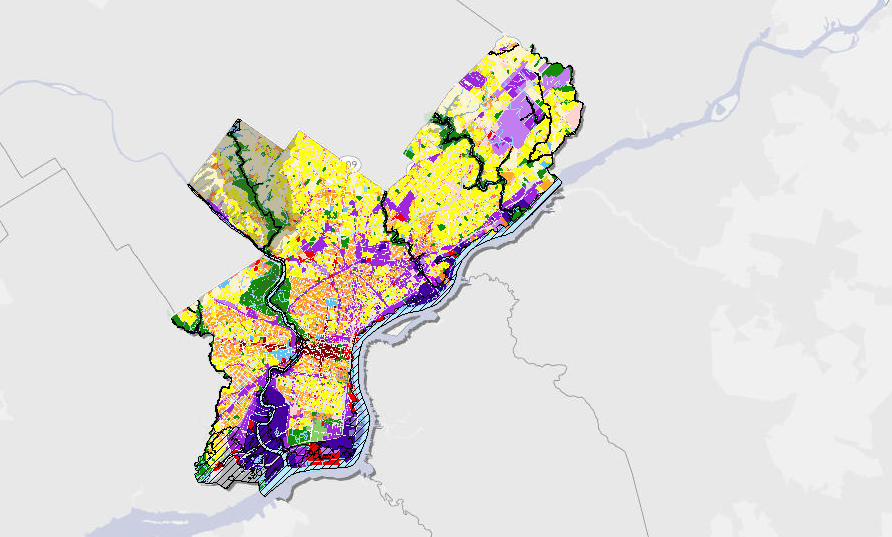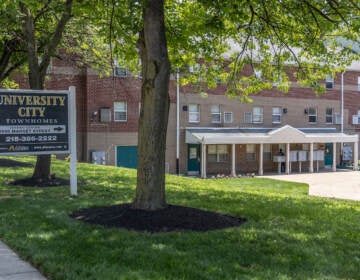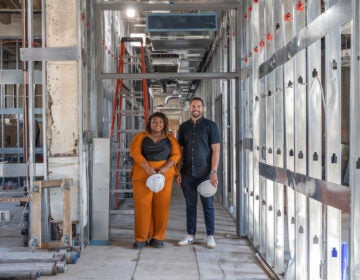Remapping is what’s happening: Committee approves a slate of zoning changes

The Philadelphia City Planning Commission has been working for more than three years on a neighborhood-by-neighborhood remapping process that’s intended to update the city’s zoning maps to reflect the types of development taking place across the city and to put zoning in place for the types of uses neighborhoods want to see in the future. But until recently, the remapping has yet to be enacted where it counts: in City Council.
On Tuesday, Council’s Committee on Rules recommended approval of a handful of bills developed through the Philadelphia2035 district remapping process as well as a handful of other project-specific and neighborhood-wide zoning changes.
One bill would update the maps in the area surrounded by Spring Garden Street, Girard Avenue, 5th Street, 2nd Street, Brown Street and 3rd Street—a portion of Northern Liberties that lies in the 5th Councilmanic District, represented by Council President Darrell Clarke. The bill makes corrective changes to the maps as well as other adjustments meant to “focus development toward the commercial corridors and locations of major transit stops,” according to Bill Kramer, director of development for the Planning Commission. A previous bill introduced by Councilman Mark Squilla would remap the portion of Northern Liberties that lies in the 1st District.
Another bill introduced by Councilman Squilla, which remaps an area of Chinatown between 7th, Arch, 13th and Callowhill streets, was also approved by the Rules Committee.
“The purpose of the remapping is to protect residential uses on small neighborhood streets from unwanted commercial development and to rezone properties to match their current land use,” said Bill Kramer. “The remapping is a recommendation of the Philadelphia2035 Central District plan.”
Other bills introduced by various Councilmembers and recommended by the committee would:
-
Rezone a 100,000-square-foot parcel in Southwest Philly to CMX-2, a commercial mixed-use designation, from an industrial category. The property is currently home to a shopping center, and the owners sought a corrective rezoning of the site to simplify the process of attracting new tenants.
-
Remap an area near the Frankford Creek and Kensington Avenue in the 7th District, represented by Councilwoman María Quiñones-Sánchez. The bill makes corrective changes to match current uses, pushes development toward commercial corridors and transit stations, and rezones properties from industrial to residential categories, according to testimony from Bill Kramer.
-
Remap the area bounded by 45th, 50th, Spruce and Market streets. The bill rezones some single-family homes to reflect their current uses, and rezones the vacant West Philadelphia High School building to a commercial category in anticipation of the building’s redevelopment. The school is slated for redevelopment by Strong Place Partners into apartments and ground-floor commercial space.
Also on Tuesday’s agenda was a bill introduced by Councilman Jim Kenney that would permit residential development in certain industrial zoning categories. Kenney agreed to hold the bill after Bill Kramer testified that its adoption would be “likely to raise a number of concerns for both businesses and residents alike.” Kramer said the Zoning Code Commission had spent a lot of time deciding what types of uses should be permitted in industrial zoning categories, among others.
Kenney didn’t mind holding the bill. He said it was intended to hasten the redevelopment of blighted industrial properties specifically, but also to start a conversation more generally about speeding up the remapping process at the Planning Commission. During the meeting, he got assurances from the Commission that it would submit a letter to Council saying how much more money it would need to hire additional staff and finish the district remapping.
“I hope they tell us what they need and we can make sure we put it in the budget before we vote on this budget for next year,” Kenney told PlanPhilly.
Kenney said he wants the remapping done as soon as possible.
“There’s projects going on out there that either are cumbersome to get the variance or when they get to the zoning board, they don’t get the right decision and we’re losing residential development opportunities all the time …” Kenney said. “There are hulking properties in neighborhoods that are in danger of fire and just plain blight that really could be converted and repurposed more quickly than they are.”
Kenney said that certain city procedures are “moneymakers” that generate more revenue and economic activity the more funding they get. Updating the zoning maps is one of them, Kenney said, as is property surveying.
“There’s, I think, four people in the survey district in the Streets Department that are responsible for surveying properties so they can be developed,” he said. “If that gets delayed and delayed and delayed, it just costs the developer more money to get it done. So those kinds of things—permit issuance, survey district, planning commission—these are all things that generate and move the economy. And they need to be funded appropriately, because the more you fund them, the more money you make.”
The committee also approved bills that would:
-
Rezone a property along 23rd Street between JFK Boulevard and Cherry Street for a major mixed-use development project.
-
Rezone a property at 27th and Girard for a five-story mixed-use development.
-
Ban pawn-shops and cash-for-gold stores in Center City, in anticipation of the potential selection of Market8 as the city’s second casino. A similar ban was already enacted in the area surrounding the proposed Provence casino, at Broad and Callowhill streets.
-
Allow Taller Puertorriqeño to construct a new cultural center at 5th and Huntingdon streets on El Centro de Oro. The organization is currently trying to raise the rest of the funding it needs to build the center.
-
Amend the University of Pennsylvania’s master plan to allow for the demolition of the former Kappa Alpha House and the construction of the Perry World House, with lecture space, classrooms, and offices.
-
Amend Drexel University’s master plan to permit the construction of a 212-room Study Hotel at 33rd and Chestnut streets. The hotel will be 125 feet tall with ground-floor retail and off-site parking for 37 cars.
The Rules Committee also held a bill, at Councilwoman Jannie Blackwell’s request, that would rezone the site of the shuttered University City High School. The site is slated for a $1 billion redevelopment plan by Drexel University, which has an agreement with the School District of Philadelphia to purchase the property for $25 million.
Drexel’s redevelopment plan is still conceptual. At the committee hearing on Tuesday, neighbors sought assurances that there would be an open process between the university and area residents as the project is developed. Councilwoman Blackwell felt that the developers hadn’t been completely forthright about their plans and the zoning changes they are seeking for the site. The hearing was recessed until next Monday, June 9th.
PlanPhilly will provide more details on negotiations between the university, the community, and the Councilwoman as they emerge.
WHYY is your source for fact-based, in-depth journalism and information. As a nonprofit organization, we rely on financial support from readers like you. Please give today.





